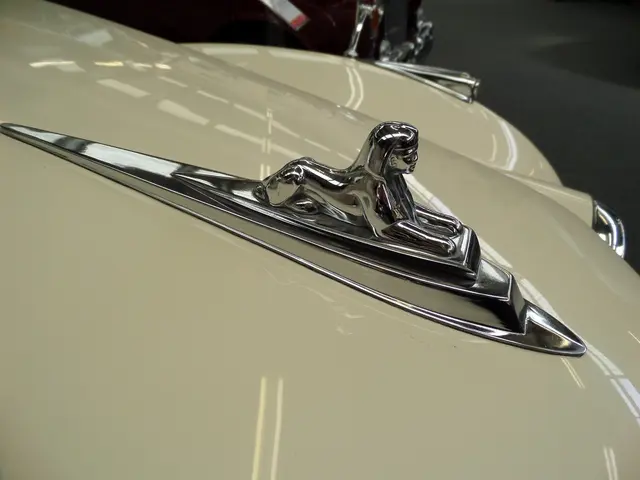Could Hyundai Group potentially inject new support into General Motors Korea?
In the ever-evolving world of automotive manufacturing, GM Korea finds itself at a crossroads, with the company announcing its involvement in a strategic alliance with Hyundai Motor Company. This partnership, set to co-develop five new vehicles by 2028, could potentially reshape GM Korea's future production plans and labor negotiations.
Last year, a significant 84.8 percent of GM Korea's production was exported to the US, with low-budget models such as the Chevrolet Trailblazer, Buick Encore GX, and Buick Envista making up a large portion of these exports. However, the new alliance could open up opportunities for GM Korea to redirect production volumes to Latin American markets, leveraging Hyundai Motor's advanced hybrid technology.
The union representing GM Korea workers views this strategic move as a sign of GM's gradual withdrawal from Korea. Labor talks between the union and management have made little progress so far, with the union seeking a 141,300 won increase, excluding seniority raises, and a bonus worth 15% of net profit, over 40 million won more than management's offer.
The partnership between the two automotive giants aims to utilise both companies' global manufacturing capabilities, research and development, and supply chain efficiencies. GM leads the mid-size truck platform development, while Hyundai handles compact vehicle and EV development. The companies plan to use joint sourcing initiatives and low-carbon steel collaboration to reduce costs and speed product rollout.
Hyundai's significant investment in US production capabilities, amounting to $21 billion through 2028, could potentially create positive impacts on labor demand and negotiations in US facilities linked to these efforts. The alliance between Hyundai and GM involves nearly two dozen assembly plants worldwide, suggesting coordinated production strategies that could affect workforce planning across regions where Hyundai and GM operate.
The complexity of integrating operations between two major automakers could also bring challenges in labor relations, as streamlined manufacturing and sourcing may involve changes in production processes affecting labor conditions and negotiations.
As GM Korea's labor talks with management are scheduled to resume on August 18, the company is planning to sell company assets, including nine in-house service centers and underused facilities and land at its Bupyeong plant. The Bupyeong plant in Incheon is set to restart operations following summer break.
In the medium term, the alliance aims for over 800,000 vehicles annually from the co-developed platforms by 2028 and broader collaboration on propulsion systems. While GM Korea itself is not singled out in the information, the Hyundai-GM global alliance—of which GM Korea is an affiliate unit of GM—forms part of a key strategic move expected to influence production scales, workforce needs, and labor negotiations across regions involved in the joint projects.
As the automotive industry continues to evolve, it remains to be seen how GM Korea will navigate these changes and adapt to its new role in the Hyundai-GM partnership. The company, founded in 1972 and running three manufacturing plants in Bupyeong and Changwon, South Gyeongsang Province, will undoubtedly face challenges but also opportunities in the years to come.
- This alliance between GM and Hyundai could potentially lead to a shift in GM Korea's production, with the possibility of redirecting volumes to Latin American markets, leveraging Hyundai's advanced hybrid technology and finance for future investments.
- The Hyundai-GM strategic partnership, aimed at joint sourcing initiatives and low-carbon steel collaboration, also emphasizes the integration of industries such as transportation and automotive, which may bring changes in labor relations and workforce needs across regions.




